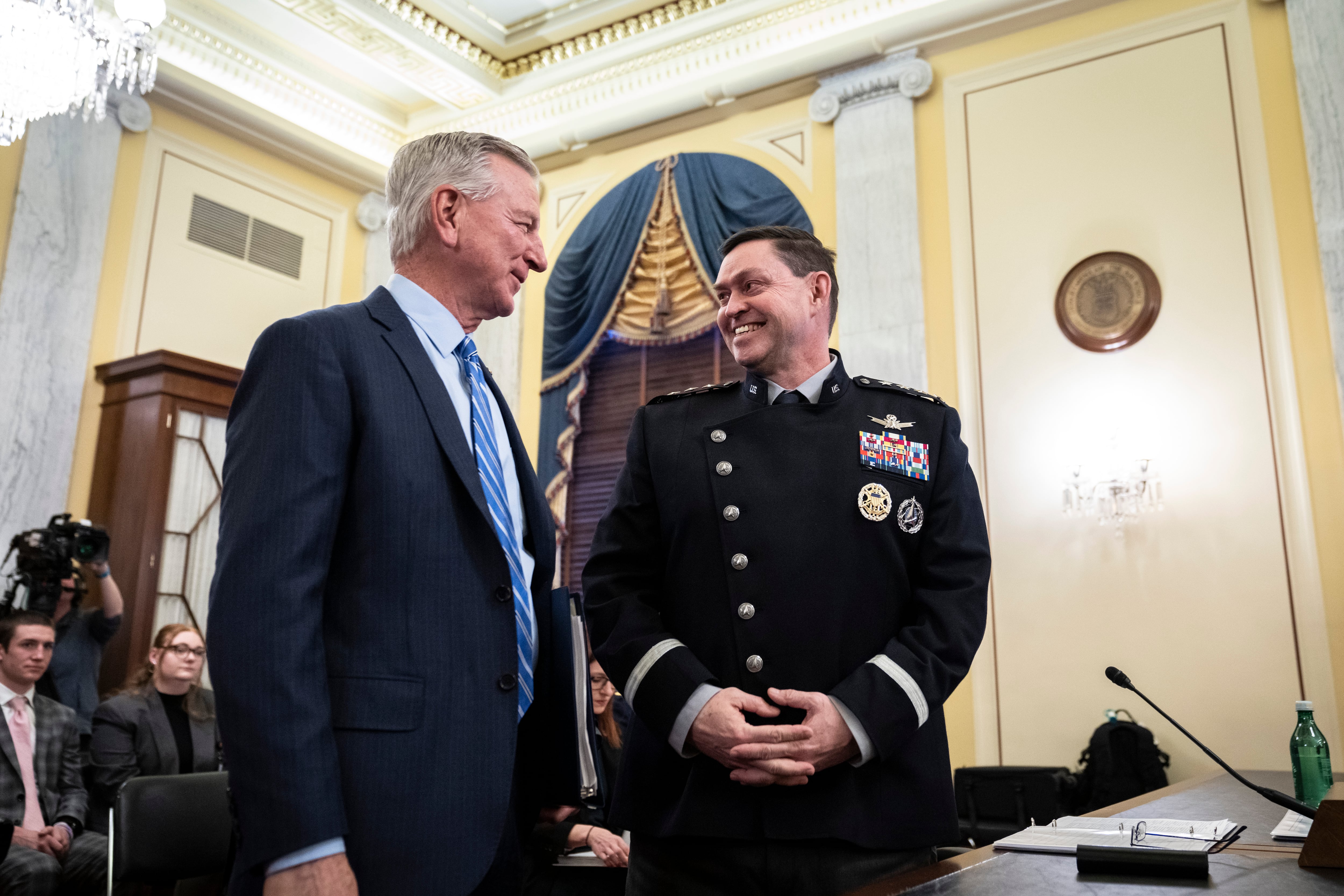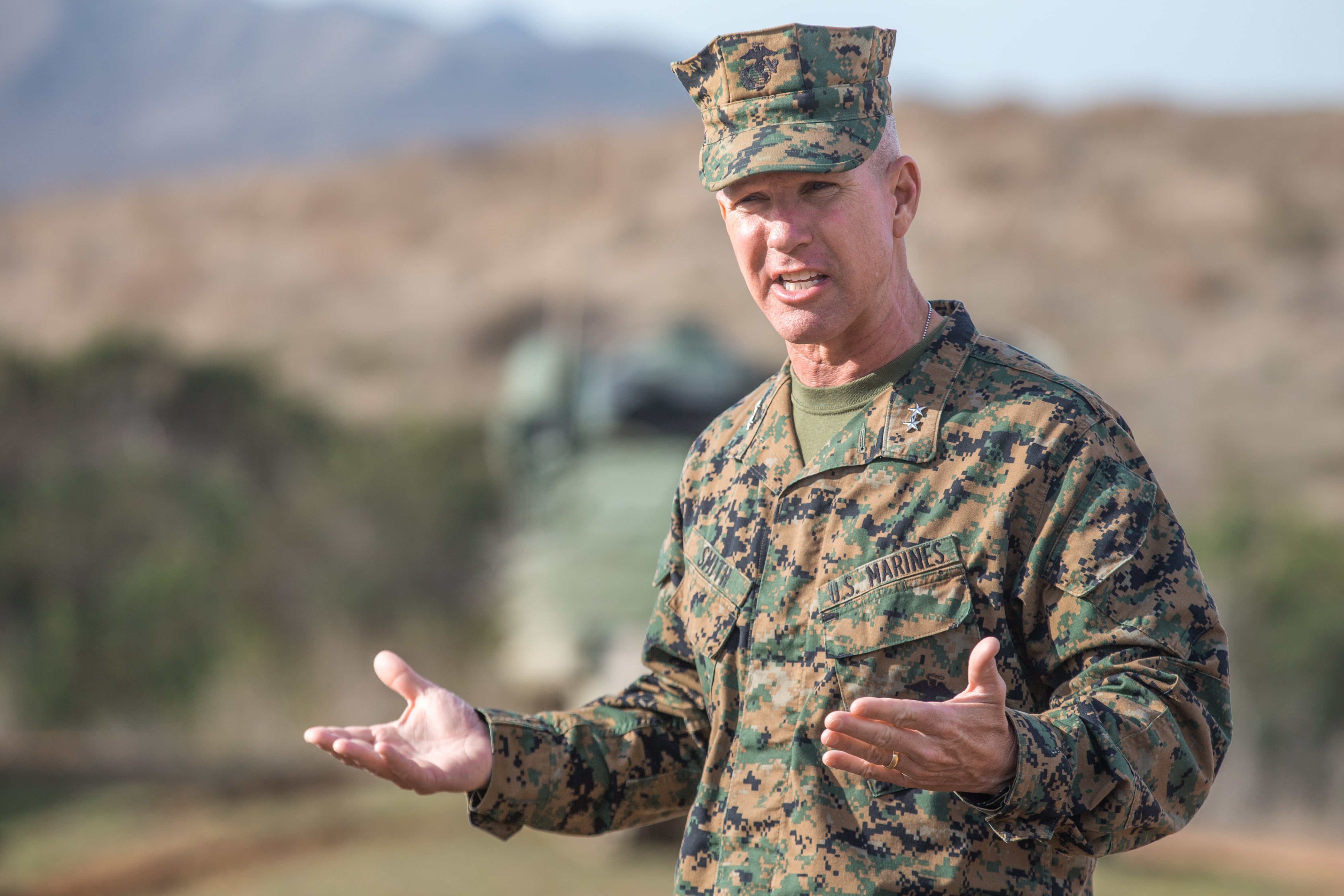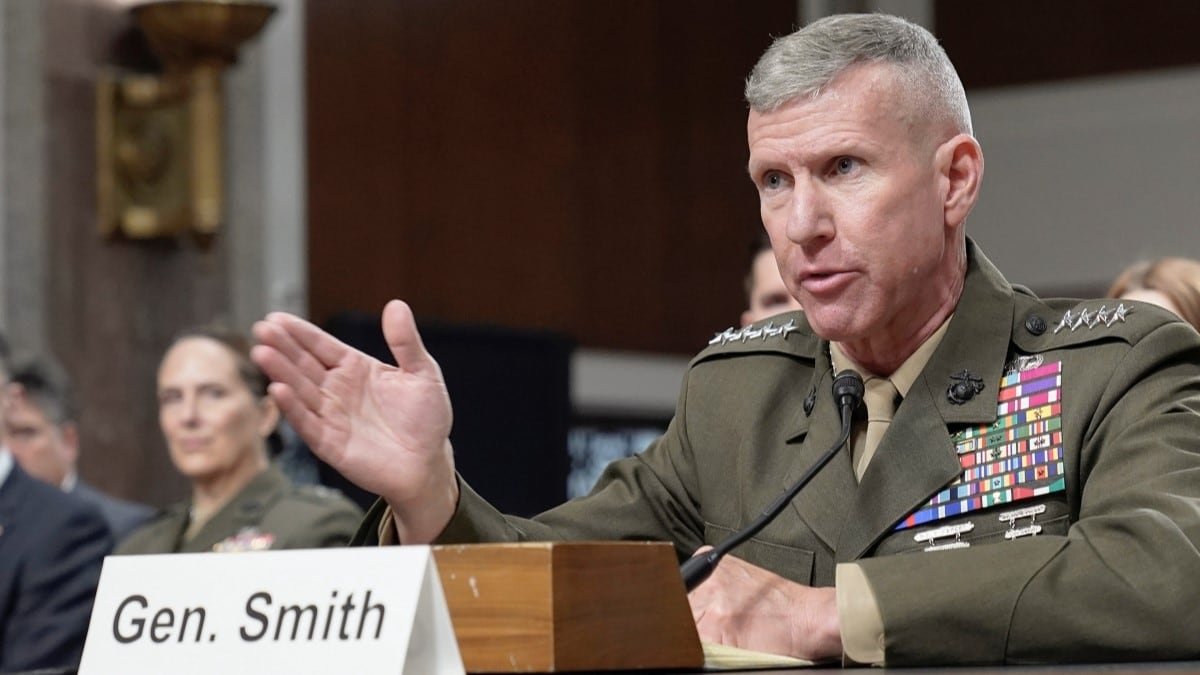Marine Gen. Eric Smith said Tuesday that the Corps’ readiness may be hindered by one senator’s hold on military nominations — the same hold that could interfere with Smith’s own process of being confirmed as the next commandant.
Two senators asked Smith at his confirmation hearing before the Senate’s armed services committee about the downstream consequences of the blanket block on senior military nominations by Sen. Tommy Tuberville, R-Ala.
Tuberville has held up nominations for general and and flag officers since February in protest of a Pentagon policy that offers troops travel expenses and leave if they have to go out of state to obtain an abortion.
“Would you say that this consistent blocking of these nominations is compromising national security?” Sen. Angus King, I-Maine, asked the general.
RELATED

“Sir, I think it certainly compromises our ability to be most ready,” said Smith, the assistant Marine commandant.
He provided an example: Each of the three Marine expeditionary forces, the largest building block forces under which Marine units fall, is headed by a three-star general with a one-star deputy. At the largest Marine expeditionary force, the three-star in charge will soon retire, Smith said.
“When he does so, there’ll be a one-star, a fairly new one, in charge of that 48,000-person Marine expeditionary force,” Smith said.
“And that compromises readiness and decision-making and the effectiveness of that division?” King asked in a follow-up question.
“Sir, it does,” Smith said.
Smith was referring to I Marine Expeditionary Force, the Marine Corps’ West-Coast-based force, Maj. Joshua Larson, a Marine spokesman, told Marine Corps Times.
The White House in March nominated Lt. Gen. Michael Cederholm, the current aviation boss, to succeed Lt. Gen. George Smith, the current head of I Marine Expeditionary Force.
The force’s deputy commander, Brig. Gen. Robert Fulford, pinned on his first star in 2019.
In response to a question by Sen. Elizabeth Warren, D-Mass., Smith emphasized that it wasn’t that one-star generals aren’t capable leaders — they simply have less experience.
“I’ve been doing this for 36 years,” Smith said. “So as I walk a flight line, or as I walk a firing range, or as I walk through a barracks, there’s a high likelihood there’s not much I haven’t seen, and I can fix things before they get started.”
One misstep by an less experienced leader can have cascading effects on the entire operation, Smith said.
Smith also noted, in response to a question from King, that a hold on general-officer nominations affects not just would-be generals but also lieutenant colonels.
The Marine Corps has a cap on its number of colonels, Smith said, so when a colonel can’t ascend to brigadier general, a lieutenant colonel can’t take his or her spot.
The current Marine commandant, Gen. David Berger, is statutorily required to end his term July 10.
President Joe Biden on May 30 nominated Smith to succeed Berger, but Tuberville’s hold on nominations may throw a wrench in that process.
RELATED

Tuberville, for his part, appeared willing to support Smith for the job of “head coach,” as he put it — if or when he ceases his hold on nominations. Earlier in the hearing, Tuberville expressed his admiration for Smith.
“Congratulations on your nomination, and look forward to supporting you,” the senator said.
Tuberville praised the general in particular for saying that the Corps’ focus was on war-fighting and lethality.
“We live in a dangerous world, dangerous world,” Tuberville said. “I would hope that some of your colleagues in the Pentagon would catch on a little bit to that and get politics out of this. I mean, politics is detrimental to a lot of things. It’s good for some things, some things it’s not. In the military, it’s not.”
Irene Loewenson is a staff reporter for Marine Corps Times. She joined Military Times as an editorial fellow in August 2022. She is a graduate of Williams College, where she was the editor-in-chief of the student newspaper.





